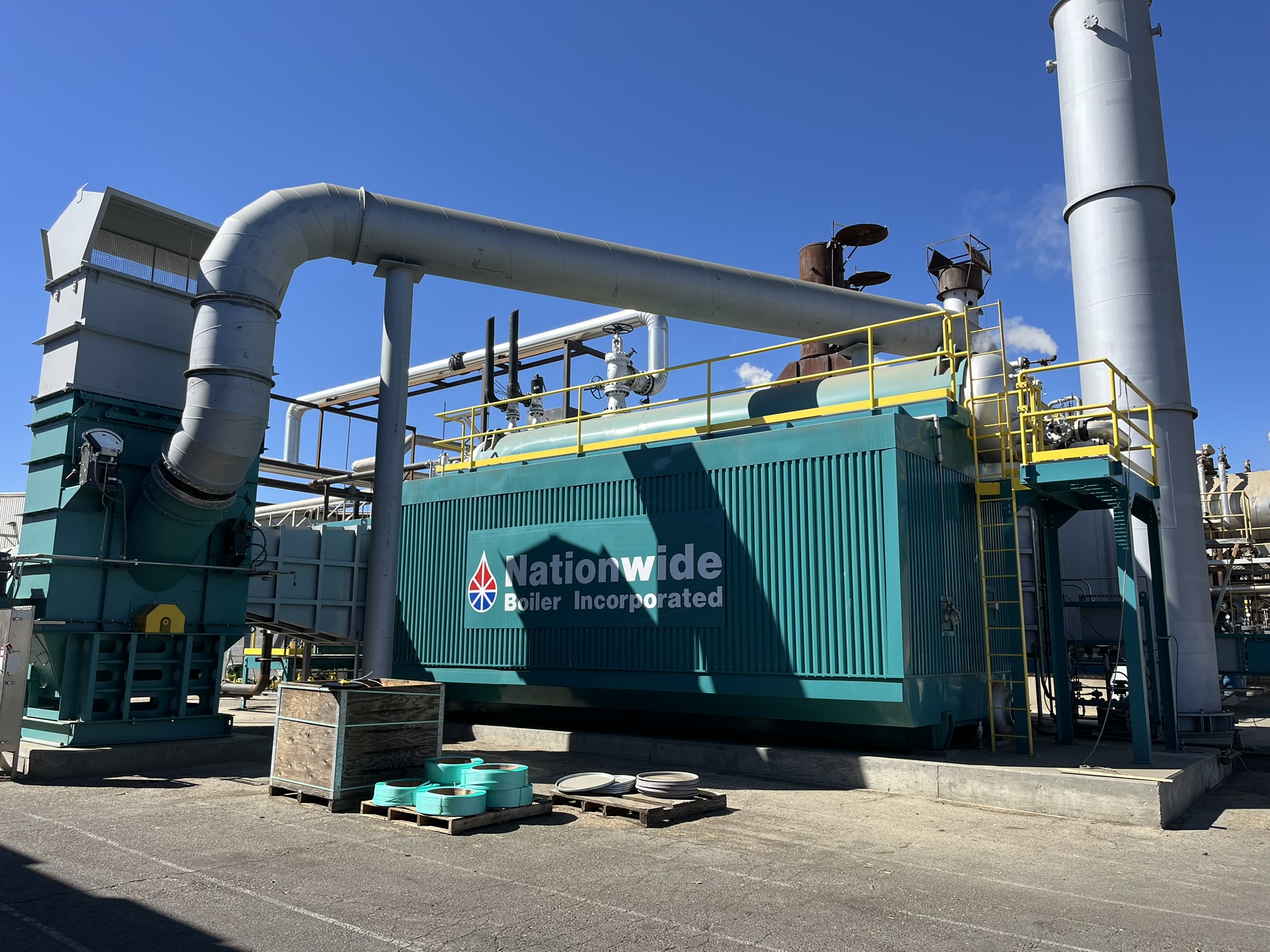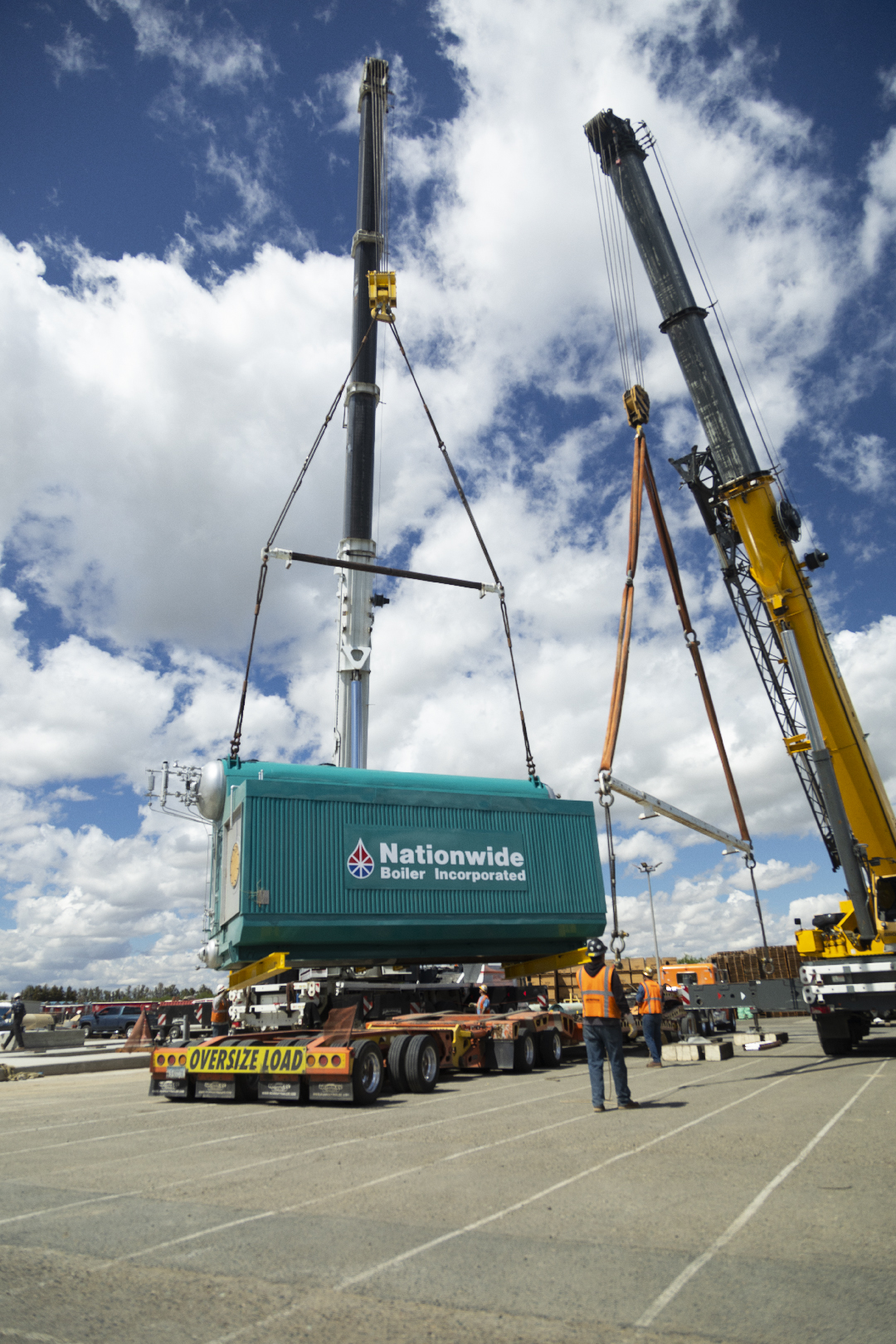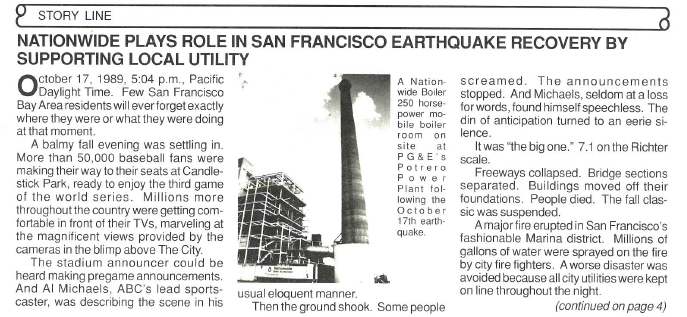
This delivery exemplifies our philosophy of “Boiler Procurement, Redefined” — giving customers immediate access to high‑capacity steam without the delays typical of traditional equipment sourcing.
Meeting Urgent Customer Needs with Strategic Boiler Procurement
The project began when a long-term customer faced a critical capacity challenge. As production needs outpaced their older equipment, the prospect of waiting a year for a new boiler was not viable. Thanks to our strategic in-stock boiler program, a high-capacity B&W package watertube boiler was available for immediate shipment, transforming a potential bottleneck into a rapid success story.
Nationwide Boiler maintains a broad range of in-stock solutions such as this 180,000 lb/hr model, enabling rapid shipping and installation across the United States and globally. Inventory covers everything from compact 50 HP vertical units to large 255,000 lb/hr superheated watertube boilers, including essential ancillary equipment like feedwater systems, blowdown separators, water softeners, and CataStak™ SCR Systems for ultra-low NOx compliance. This diversity enables customers to access rapid replacements or planned upgrades without lengthy lead times and fabrication delays.
This is exactly what “Boiler Procurement, Redefined” means: eliminating the long lead times and uncertainty typically associated with major steam equipment purchases.
Overcoming Logistics and Delivery Challenges
Transporting equipment of this scope requires both engineering expertise and logistical finesse. Because the 180,000 lb/hr boiler was too large to transport upright, it was rotated 90 degrees and shipped on its side from Kansas to California, with police escorts ensuring both public safety and on-time arrival. When trucking emerged as the optimal solution over rail due to control and delivery timeline concerns, the engineering and logistics teams coordinated every phase to maintain speed and reliability.
Preparation also extended beyond transport. Early piping and foundation work enabled site teams to quickly tie in connections and reduce installation timeframes once the boiler arrived. By managing complex moves like this, we continue redefining what boiler procurement can look like — faster, smoother, and engineered for control.
Navigating Emissions Compliance and Customization
Permitting requirements are often the major hurdle for large steam projects, especially in states like California with strict air district requirements. In this case, the replacement boiler required compliance with stringent emissions standards including 2.5 PPM NOx, 10 PPM ammonia slip, and 25 PPM CO. Our project team worked closely with both the end-user and regulatory authorities, customizing the system with Nationwide’s CataStak™ SCR technology and an enhanced heat-recovery economizer to minimize emissions and ma ximize operating flexibility.
ximize operating flexibility.
The ability to match technical solutions such as fully metered controls and customized economizers to each customer’s needs establishes Nationwide Boiler as a trusted partner for food processors, petrochemical companies, and manufacturers with tight project windows and demanding performance expectations.
Proactive Planning Pays Off for Mission-Critical Steam
A key takeaway for plants facing urgent steam shortages is that planning ahead is vital. Boiler owners and operators should consult with their team early to establish tie-in points, assess site needs, and prepare for seamless installation should an emergency arise. With standardized drawings, in-stock units, and engineered ancillary packages available, facilities can trust Nationwide Boiler to help them avoid costly downtime and accelerate timelines when every hour counts.
This proactive approach aligns with our vision of “Boiler Procurement, Redefined” — enabling facilities to prepare for the unexpected and deploy solutions without delay.
The Nationwide Advantage: Inventory, Experience, and Customer Commitment
Whether the need is for new, reconditioned, or rental boilers, Nationwide Boiler’s extensive inventory and experienced technical staff enable companies to address equipment failures or fast-track expansion plans. Our in-stock inventory spans a wide range of capacities, support equipment, and compliance solutions, ready to ship and ready to solve real-world challenges.
Looking for a boiler solution ready on your schedule? Nationwide Boiler delivers on site and on time, backed by decades of expertise, redefining the traditional model for boiler procurement.




 Leadership, Recognition, and Looking Ahead
Leadership, Recognition, and Looking Ahead